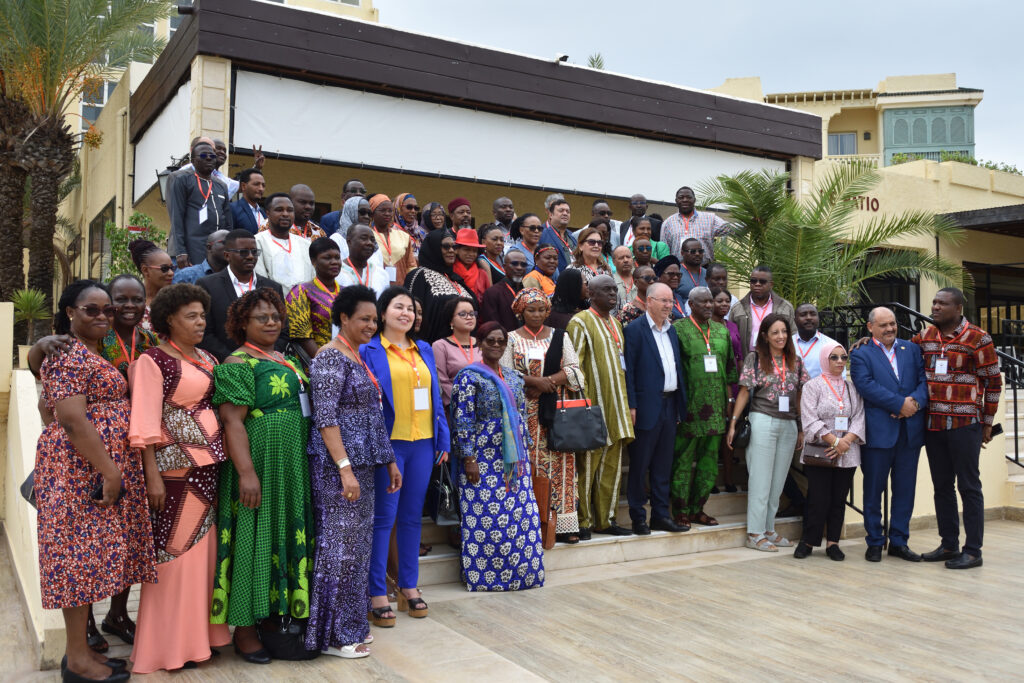29 September, 2022The Tunis declaration, adopted on 27 September by trade unions from 39 African countries stresses the inclusion of labour provisions in the African Continental Free Trade Area (AfCFTA) agreement to ensure compliance with international labour standards and the decent work agenda.
The declaration was made at the ITUC-Africa Trade Union Continental Forum on the AfCFTA which was held under the theme: Ensuring decent work in the framework of the AfCFTA implementation – towards the inclusion of the positions of the trade unions in the AfCFTA processes.
According to the declaration a
“space for social dialogue must be created at the national, regional and continental level for African citizens, and their socio-economic groupings — that is workers including those of the informal economy, farmers, traders, producers, enterprises, civil society, private sector – to participate effectively in a democratic and transparent process and ensure the reflection of their concerns and views in the negotiations.”
Further, the unions want information on the AfCFTA processes to be made available to workers “in a timely and accessible manner.” They argue that this is necessary to enable effective participation.
Noureddine Taboubi, Générale des Tunisienne du Travail (UGTT) secretary general says:
“The AfCFTA creates possibilities for decent work that will stop irregular migration and modern slavery, and provide an opportunity to transform Africa’s precarious economies, and end poverty.”
Kwasi Adu-Amankwah, ITUC-Africa secretary general says:
“We want an appropriate space for non-state actors in the AfCFTA to canvas for social dialogue at national and continental levels. Trade unions should be in this space to advance workers’ rights and interests, and to support trade and regional integration in Africa.”
“The AfCFTA is an important agreement for the continent with potential to create decent jobs and revive industrialization in the manufacturing sectors through increased intra-African trade. But this opportunity will be lost if workers and trade unions are excluded from the negotiations,”
emphasizes Rose Omamo, IndustriALL vice president, who participated in the forum.
The AfCFTA, which started trading in 2021, aims to promote intra-African trade, value added manufacturing and sustainable development. Additionally, it is expected to double trade and increase the integration of regional economic communities – Community of Sahel-Saharan States (CEN-SAD), Common Market for East and Southern Africa (COMESA), East African Community (EAC), Economic Community of Central African States (ECCAS), Economic Community of West African States (ECOWAS), Intergovernmental Authority for Development (IGAD), Southern Africa Development Community (SADC) and Arab Maghreb Union (UMA).
The forum comprised 90 delegates, from ITUC-Africa affiliates, sub regional trade union organizations, trade union support organizations, and civil society organizations, including those from IndustriALL Global Union affiliates in Tunisia, Madagascar, Kenya, and Zimbabwe.
The forum, which was held with support from SASK and the Labour Research Service, received research reports from Chad, Ghana, Namibia, Rwanda, Tunisia, and Zambia on possible national impacts of the AfCFTA. Other presentations were made by ILO-ACTRAV, SASK and Third World Network Africa.
